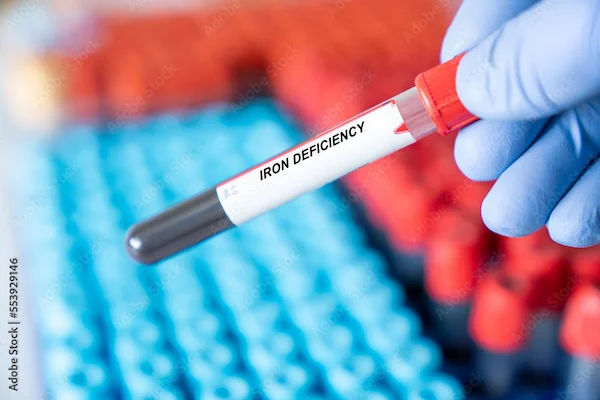Understanding Your Immune System: Functions and Ways to Support It
Learn how your immune system works, its key functions, and practical ways to strengthen and support your body’s defences.


Introduction
Imagine a sophisticated, 24/7 security detail operating within you, tasked with identifying friends, neutralising foes, and maintaining peace. That’s your immune system in a nutshell: a complex, layered network of cells, tissues, and organs working in concert to protect you from harmful invaders like bacteria, viruses, and toxins. But what exactly is responsible for this incredible feat of biological engineering? This guide will demystify the key players, from the well-known white blood cells to the critical but often-overlooked lymphatic system. We'll break down how they work together, how to spot potential issues, and most importantly, how you can actively support your body’s natural defences for lifelong health.
The Two Pillars of Immunity: Innate vs. Adaptive
Your immune system isn't a single entity but a collaborative effort between two main branches: the innate and adaptive systems. Understanding this distinction is key to grasping how your body handles threats.
The Innate Immune System: Your First Line of Defence
The innate immune system is your built-in, non-specific protection. It’s the first to respond to any threat, acting within hours.
Physical and Chemical Barriers
Your skin is the most obvious barrier, but mucous membranes in your nose, throat, and gut also trap pathogens. Stomach acid and enzymes in tears and saliva provide a powerful chemical defence.
The Cellular Rapid Response Team
If a pathogen breaches these barriers, cells like phagocytes (e.g., macrophages) swarm to engulf and destroy the invaders. This process often causes inflammation, redness and swelling around a cut, which is a sign of this internal battle.
The Adaptive Immune System: Your Specialised Special Forces
If the innate system can’t contain a threat, the adaptive immune system kicks in. This branch is specific, intelligent, and has memory. It takes a few days to activate but provides long-lasting protection.
B-Lymphocytes: The Antibody Factories
B-cells are responsible for producing antibodies. These Y-shaped proteins lock onto specific antigens (foreign molecules) on a pathogen, marking it for destruction and preventing it from infecting your cells.
T-Lymphocytes: The Commandos and Coordinators
T-cells have multiple roles. Helper T-cells act as commanders, coordinating the immune response. Killer T-cells (Cytotoxic T-cells) are the commandos, directly seeking out and destroying your own cells that have been infected by a virus or become cancerous.
Consult an Immunologist for the best advice
The Lymphatic System: The Unsung Hero of Your Immunity
While white blood cells get most of the credit, they couldn't function without the lymphatic system. This network of vessels, nodes, and organs is responsible for circulating lymph fluid, housing immune cells, and filtering out waste.
Key Organs of the Lymphatic System
The lymphatic system plays a vital role in immunity and fluid balance.
Lymph Nodes: The Security Checkpoints
These small, bean-shaped glands are clustered in your neck, armpits, and groin. They filter lymph fluid, trapping bacteria, viruses, and other debris, which are then destroyed by lymphocytes. When you fight an infection, they swell as immune cells multiply inside them.
Spleen: The Blood Filter and Reservoir
Located in your upper left abdomen, the spleen filters blood, removing old or damaged red blood cells and platelets. It also stores white blood cells and platelets and helps initiate immune responses against blood-borne pathogens.
Thymus: The T-Cell Training Academy
This small organ in the upper chest is where T-cells mature and learn to distinguish between your own cells and foreign invaders. It is most active in children and adolescents.
Bone Marrow: The Birthplace of Blood Cells
The soft tissue inside your bones is the factory for all blood cells, including the stem cells that develop into lymphocytes (B-cells and T-cells) and other crucial immune cells.
How Lymphatic Vessels and Fluid Circulation Work
Lymphatic vessels run parallel to your blood vessels, collecting excess fluid (lymph) from tissues. This fluid carries waste products and pathogens to the lymph nodes for filtration before being returned to the bloodstream. This circulation is vital for immune surveillance.
How Your Immune System Fights an Infection: A Step-by-Step Guide
Your body has a powerful defence mechanism against illness.
1. Breach: A pathogen (e.g., a flu virus) enters through your nose.
2. Innate Response: Macrophages in the area engulf some viruses and release signals that trigger inflammation.
3. Alert: Dendritic cells take pieces of the virus to the nearest lymph node to present the antigen to adaptive immune cells.
4. Activation: In the lymph node, helper T-cells are activated and, in turn, activate specific B-cells that recognise the virus.
5. Attack: B-cells rapidly multiply and produce massive amounts of antibodies that flood into the blood. Killer T-cells seek out and destroy infected cells.
6. Memory: After the infection is cleared, memory B and T cells remain, providing lasting immunity against that specific strain of flu.
Signs Your Immune System Might Be Compromised
While occasional illness is normal, consistent patterns can signal an issue. Be mindful if you experience:
Frequent and recurrent infections (colds, pneumonia, bronchitis).
Infections that are severe or difficult to treat.
Persistent fatigue and low energy, despite adequate sleep.
Slow wound healing.
Digestive issues like frequent diarrhoea, cramping, or nausea.
If you consistently experience these symptoms, it is crucial to consult a doctor for a proper evaluation. You can easily book a consultation with a specialist online through Apollo24|7 to discuss your concerns.
How to Naturally Support and Strengthen Your Immune System
You can’t control everything, but your daily habits profoundly impact your immune resilience.
Diet and Nutrition for Immune Health
Focus on a whole-foods, plant-rich diet. Key nutrients include:
Vitamin C: Supports cellular functions of both innate and adaptive systems (citrus fruits, bell peppers, broccoli).
Vitamin D: Modulates immune responses; many people are deficient (sunlight, fatty fish, fortified foods). Apollo24|7 offers a convenient home collection for tests like vitamin D to check your levels.
Zinc: Crucial for normal development and function of immune cells (legumes, seeds, meat).
Probiotics: Support a healthy gut microbiome, where nearly 70% of your immune tissue resides (yogurt, kefir, fermented foods).
The Power of Lifestyle: Sleep, Exercise, and Stress Management
A healthy lifestyle strengthens your body and mind.
Sleep: Aim for 7-9 hours. During sleep, you produce cytokines, proteins that target infection and inflammation.
Exercise: Regular, moderate exercise promotes healthy circulation, allowing immune cells to move through the body efficiently.
Stress Management: Chronic stress suppresses immune function. Practices like meditation, yoga, and mindfulness can keep cortisol levels in check.
Conclusion: Working in Harmony for Your Health
Your immune system is not a single organ but a brilliantly orchestrated symphony conducted by your bone marrow, thymus, spleen, lymph nodes, and a vast army of cells. The lymphatic system serves as the essential transportation and filtration network that makes it all possible. By understanding these key players and the roles they are responsible for, you can appreciate your body's incredible defensive capabilities. Support this complex system by nourishing your body with healthy food, prioritising sleep, managing stress, and staying active. Remember, if you have persistent health concerns, always seek professional medical advice to ensure your internal defence network is functioning at its best.
Consult an Immunologist for the best advice
Consult an Immunologist for the best advice

Dr. Aijaz Muzamil
Ent Specialist
46 Years • MBBS, Ms ENT
Bengaluru
Apollo Clinic, Sarjapur Road, Bengaluru

Dr. Anand Ravi
General Physician
2 Years • MBBS
Bengaluru
PRESTIGE SHANTHINIKETAN - SOCIETY CLINIC, Bengaluru

Dr. Ramalinga Reddy
General Physician
5 Years • MBBS MD General medicine
Bengaluru
PRESTIGE SHANTHINIKETAN - SOCIETY CLINIC, Bengaluru

Dr. Chaithanya R
Internal Medicine Specialist Diabetologist
16 Years • MBBS, MD Internal Medicine, Fellowship in Diabetes(UK), CCEBDM(PHFI)
Bangalore
Apollo Clinic Bellandur, Bangalore
(75+ Patients)

Dr. Jyothi Rajesh
Obstetrician and Gynaecologist
22 Years • MBBS, DGO(DNB)
Bangalore
Apollo Clinic Bellandur, Bangalore
More articles from General Medical Consultation
Frequently Asked Questions
1. What is the most important organ for the immune system?
There isn't one single 'most important' organ. It's a collaborative system. The bone marrow is the birthplace of all immune cells, the thymus trains T-cells, the spleen filters blood, and lymph nodes are critical hubs for immune activation. They all play indispensable roles.
2. Can you boost your immune system overnight?
No, true immune support is a long-term endeavor based on consistent healthy habits, not a quick fix. Things like supplements or extreme diets won't provide immediate, dramatic results. Focus on sustainable lifestyle choices for lasting resilience.
3. How are the immune system and lymphatic system connected?
They are deeply intertwined. The lymphatic system provides the infrastructure and transportation network for the immune system. It circulates lymph fluid, which carries immune cells to where they are needed and brings waste products to lymph nodes to be filtered out and destroyed.
4. What are autoimmune diseases?
An autoimmune disease occurs when the adaptive immune system malfunctions and mistakenly attacks the body's own healthy cells and tissues. Examples include rheumatoid arthritis, lupus, and type 1 diabetes.
5. Does being cold really weaken your immune system?
Not directly. However, spending more time indoors in close quarters with others during cold weather increases your exposure to circulating viruses. Some studies also suggest that cold temperatures might slightly dampen the nasal innate immune response, potentially making it easier for some viruses to establish an infection.




